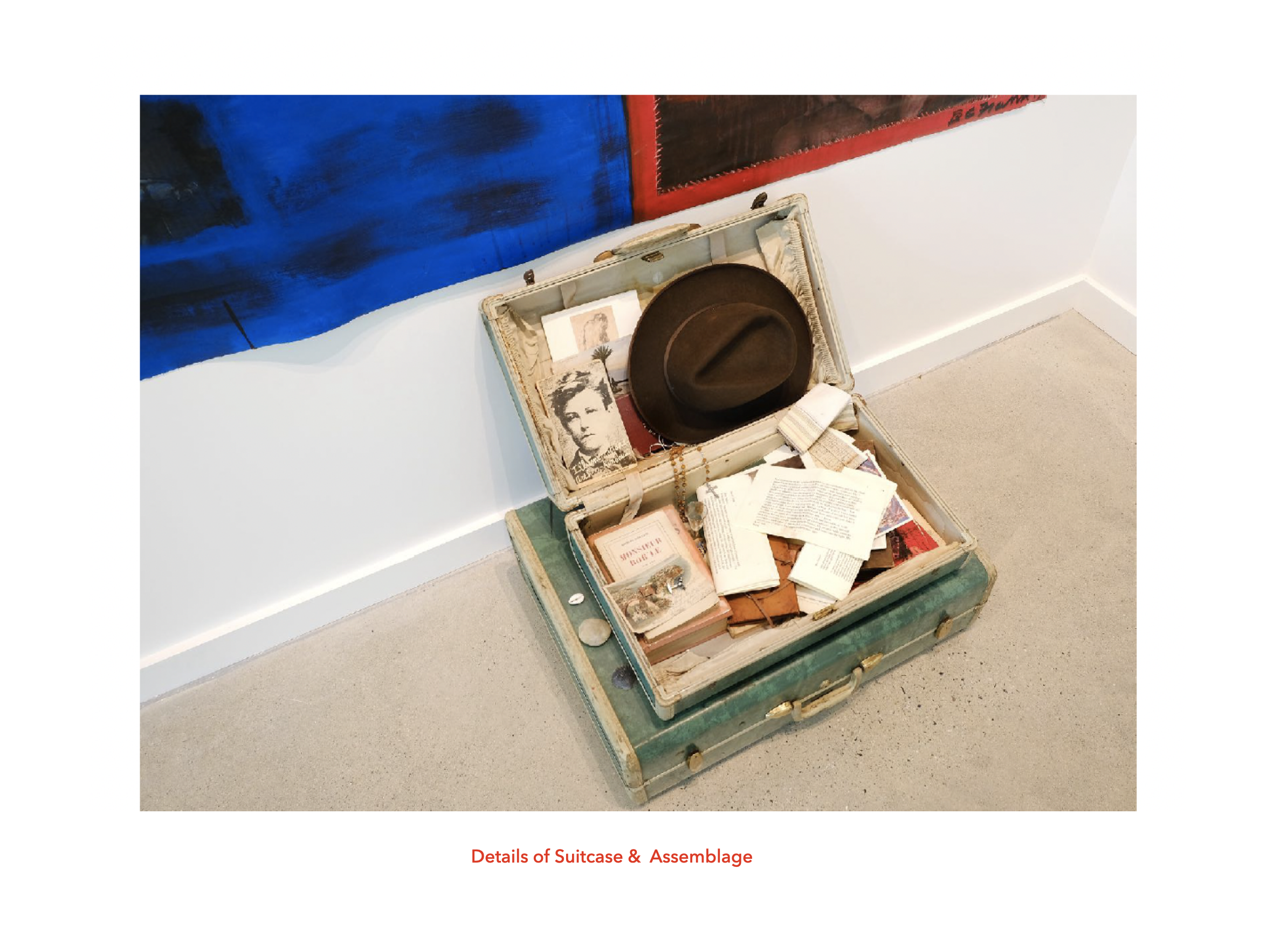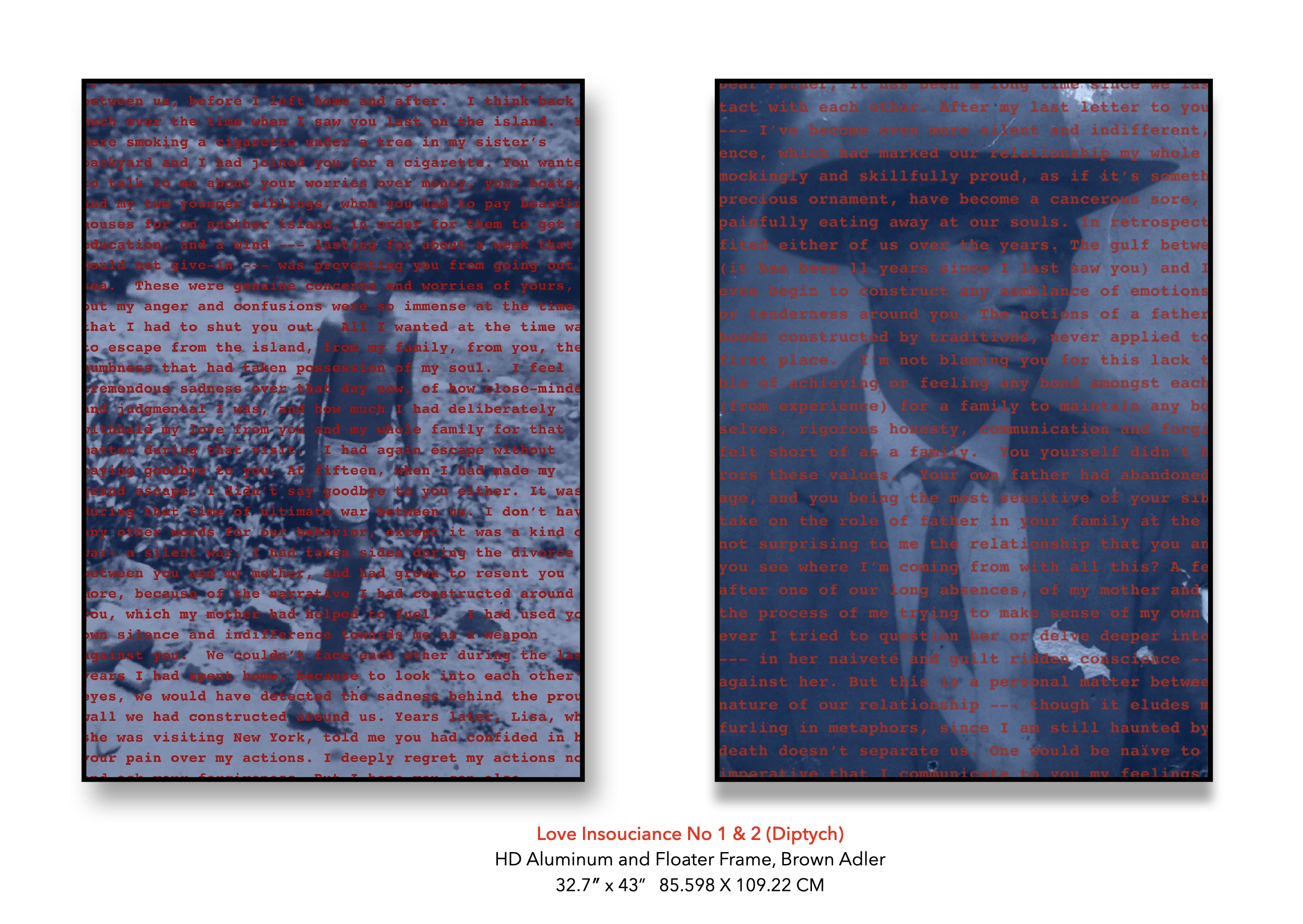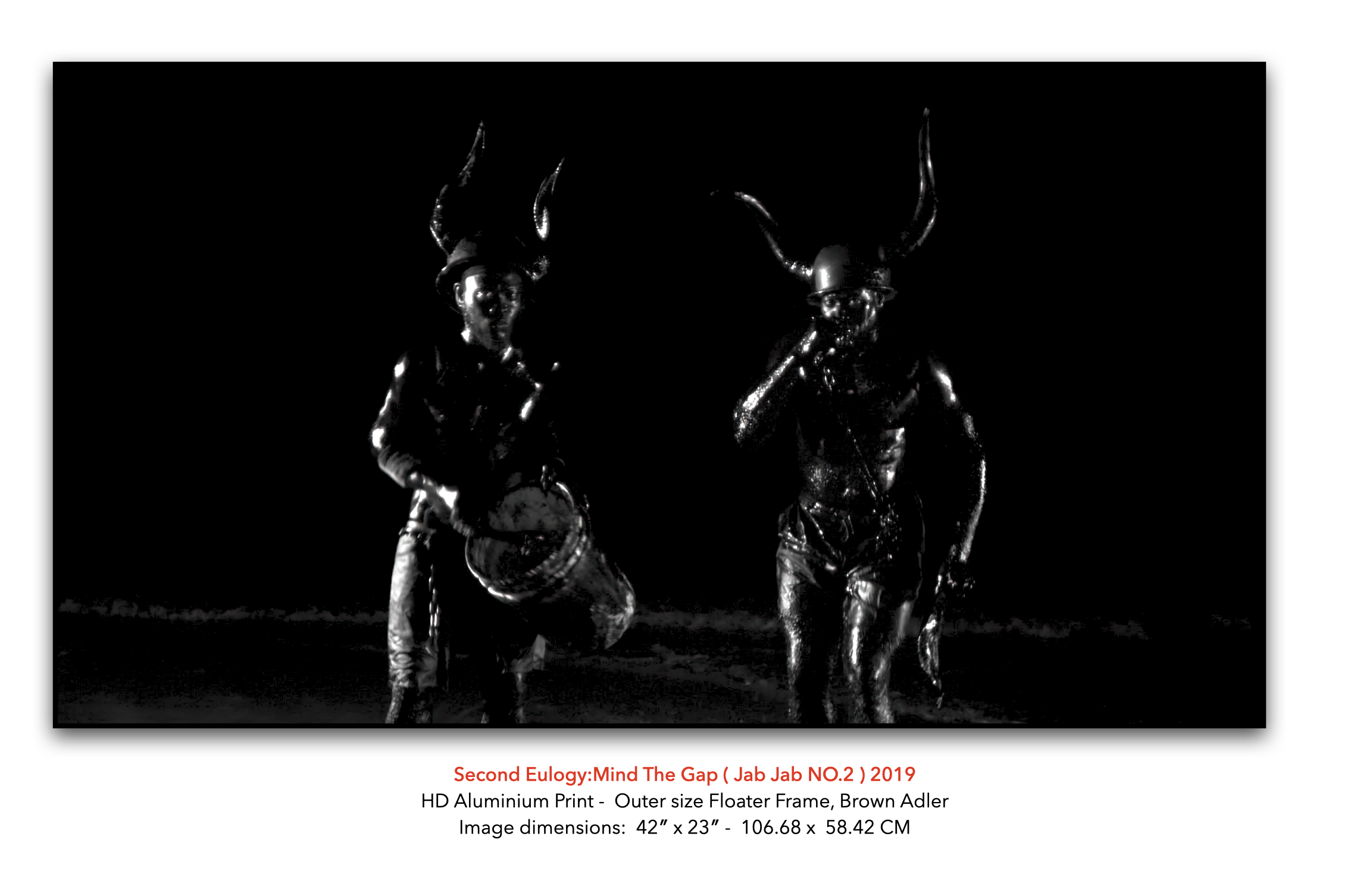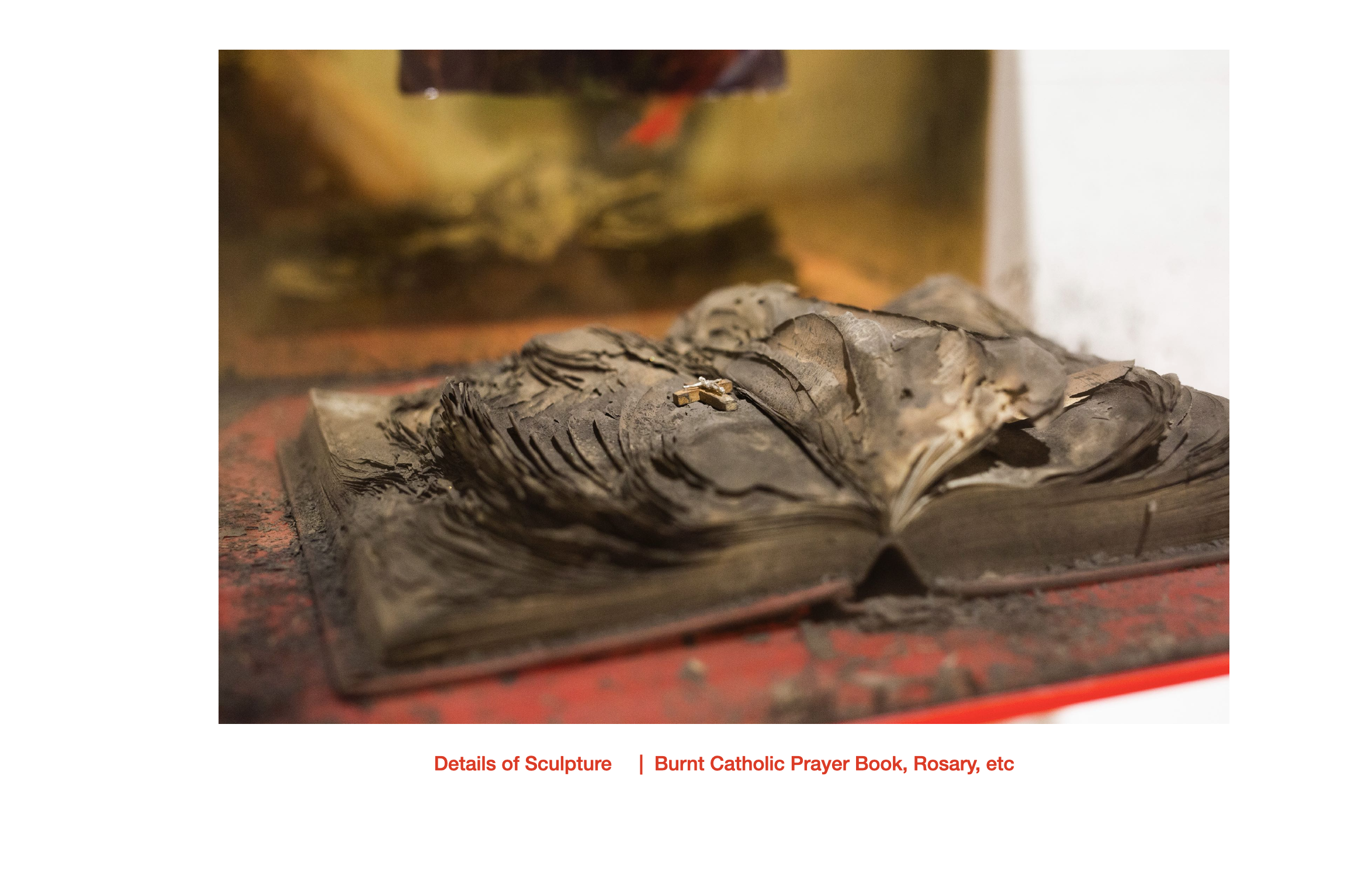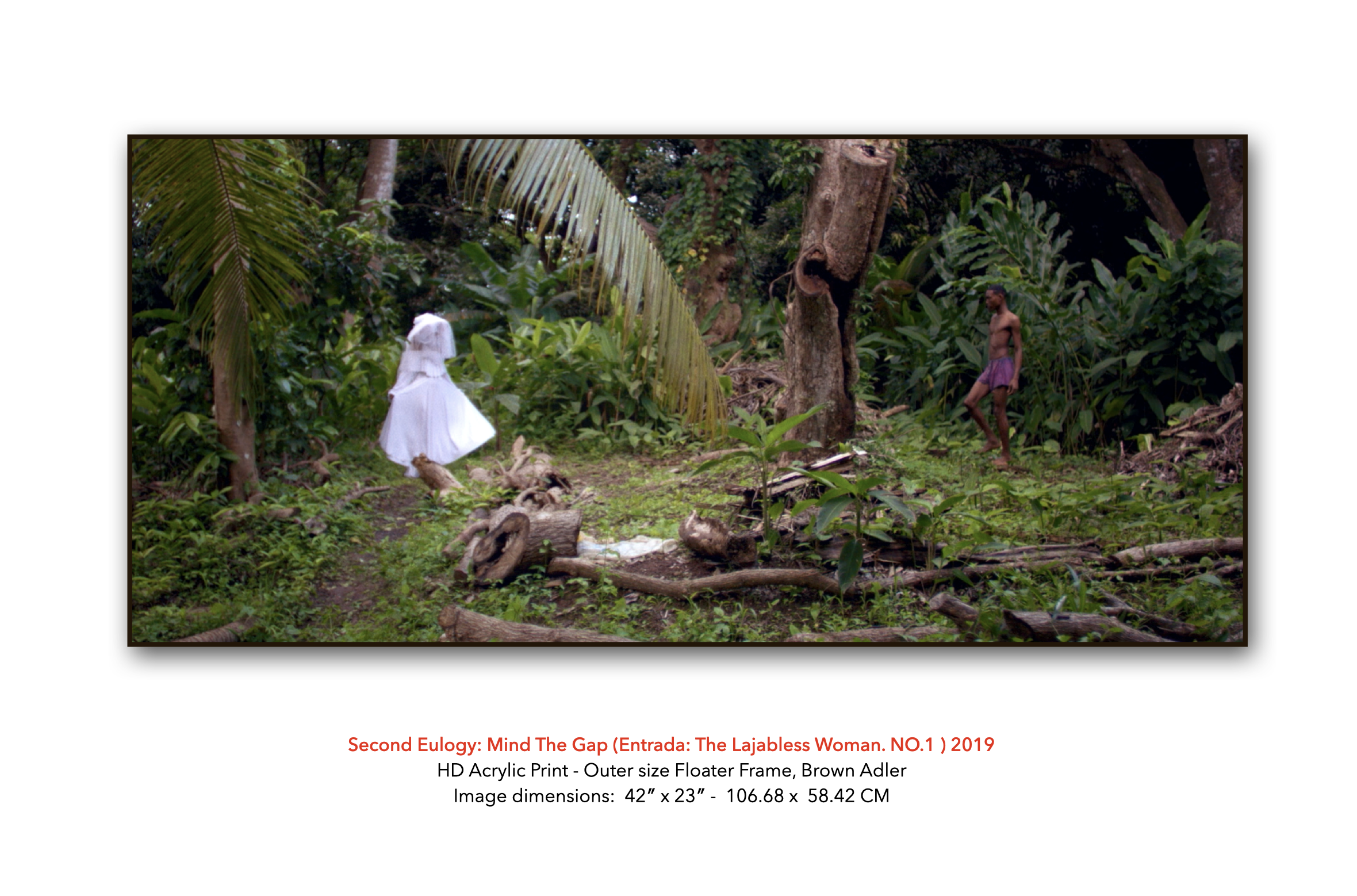Second Eulogy: Mind The Gap
“Most of us know the parents or grandparents we come from. But we go back and back, forever; we go back all of us to the very beginning; in our blood and bone and brain, we carry the memories of thousand of beings [...] we cannot understand all the traits we have inherited. Sometimes we can be strangers to ourselves.”
—V. S. Naipaul
Second Eulogy: Mind The Gap is an autobiographical de-construction and re-positioning of memories from my father’s life— memories to which I give a voice by de-contextualizing and de-constructing the mythologies and legacies of the present/absent one. The collection comprises a one-channel video installation set centrally in Grenada, accompanied by multi-media collages on canvas, paper, sculptures, and also a two-panel video installation. It sketches multiple evocative vignettes, forms, and possibilities of narratives that ruminate on themes of exile, migration, colonialism, and sexuality.
My father was a boat-builder and seafarer from the Island of Petite Martinique, a sister isle of Grenada in the West Indies. After his death three years ago, I found a suitcase containing maps, letters, stamps, and various mementos that constituted the archive of his life. These memories became the instigator and compass of this new body of work. Sifting through his personal effects I came across answered and unanswered letters exchanged between us across continents, similar letters exchanged between him and my grandfather who had abandoned his family to live with another woman in Tobago, as well as letters exchanged between my father and his sister who migrated to America. Through these letters I mine and interrogate the psychological, historical and geographical landscape of our estrangement— the terra incognito.
The letters formed a pattern starting with my grandfather that marked our family’s ancestry of global seafarers and mirrored my own early escape from home, a great divide not just by water but the emotional gulf that is the spine of these personal and collective narratives of loss, grief, displacement, and longing— the hitherto narratives of diasporas and exile experience. My father’s suitcase has always been a symbolic object that holds the effigies of a much larger rupture, the geographical displacement and generations of exile of my Caribbean family’s Scottish and African ancestry. It’s also representational of Trans-Atlantic passages of slaves and indentured servants who came to the Caribbean, the Empire Windrush generation that migrated to England in the 1950s and ’60s in the hope of a better life, and the current global refugee crisis.
2nd Eulogy: Mind The Gap spurns personal tales of loss, longings, memories, and the phantasmagoria by interweaving fiction and non-fiction to conjure an abstract story of interconnected lives. The central tale narrates the lives of Nelson, a fisherman and father; his gay son James coming of age in a verdantly charged landscape; Antoinette, Nelson’s wife who embodies the island’s colonial past and Mother Country; and their maid, Josephine. Apart from telling the story of my father’s life, I wanted to explore personal experiences of growing up as a gay teenager in Grenada: the ridicule; the sexual molestation; the trauma. In many ways, James’s story mirrors my own.
That said, I feel it was important to employ a tone that felt closer to fiction and abstraction to give me the poetic liberty to construct alternate plot lines, preconceived notions and expectations of revisiting, at times, painful and uncomfortable memories of growing up on the island as a gay teenager. I want the film to feel as if one has entered the vortex of a dream, so I created my own temporality, a disruption in time. The vignettes span decades to narrate historical and cultural collective moments; as well as local traditions like Jab Jab, Viecoux, and Shortkness. I experimented with memories and flashbacks to disavow the natural chronology of events.
The accompanying collages of Second Eulogy: Mind The Gap serve as an extension of the film installation. Images from my father’s suitcase and other sources touch on motifs from the film to re-contextualize the personal, historical, and psychological impact that Grenada and my father have played in my life. Many of the images are hand-sewn into the canvas as acts of remembrance to my father who was a skilled and sought-after boat builder. He too hand hand-stitched his canvases, and the sails of his countless hand-made boats. In addition, images of the Empire Windrush add historical context to my father and several other family members who came of age during the great migrations of West Indians to England and America. Some of the texts on the canvas are fragments taken from letters I found in my father’s suitcase. The usage of text and photography played a primordial role in the formation of this collection.
Ory Dessau in his essay, Against The Archive, mentioned that Jacques Derrida defines the archive as a desire to restore and reconstruct, both impelled by the death drive and threatened by it: “Right on what permits and conditions archivization, we will never find anything other than that which exposes to destruction.” Similarly, Roland Barthes, while examining his mother’s photo albums after her death, concludes: “The photograph for all its promised immortality, always hints at death.” All these loose strands of ideas were at the forefront of my mind as I set out to excavate my father’s personal archive and create this body of work. This idea of death and mortality, truth versus reality, what the adult said, what was said on the television and radio in 1983, what I retained and choose to forget. The memories of confusion and desires the first time a man laid his hands on my body, my sense of abandonment— the gap of time.

